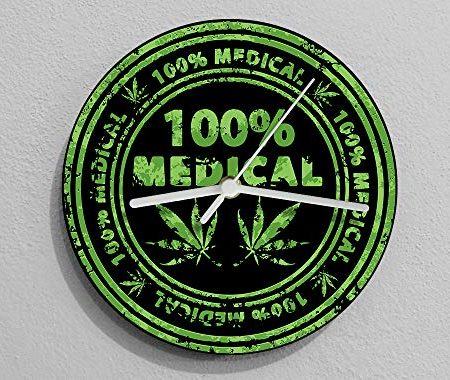Marijuana
Marijuana, also referred to as cannabis, is a plant that has more than 100 chemical compounds in it, including delta-9-tetrahydrocannabinol (THC) and cannabidiol (CBD). Most people use marijuana for its psychoactive effects, which can cause feelings of relaxation, euphoria, and a change in how they sense time and space. Nevertheless, marijuana has the potential to be therapeutically beneficial for different medical conditions. Marijuana has been used for thousands of years for both medicinal and recreational purposes by various cultures worldwide. Recently, there has been increasing curiosity regarding its potential medical benefits, especially in managing chronic pain, epilepsy, and other illnesses.
THC is a key compound in marijuana that attaches to cannabinoid receptors in the brain and body causing its psychoactive effects. Meanwhile, CBD, another component of marijuana, does not bring about the same psychoactive effects as THC. Rather, studies have shown that CBD may have therapeutic advantages for conditions such as anxiety, depression, and epilepsy. Although marijuana is illegal at the federal level in the United States, some states have legalized it for medicinal or recreational purposes. Nevertheless, there are still substantial legal and social obstacles to its use, and it remains a contentious issue.
There are different ways to consume marijuana, such as smoking, vaping, edibles, and tinctures. However, each method has its own advantages and disadvantages. For instance, smoking marijuana may cause respiratory issues, while dosing edibles accurately may be challenging, resulting in unintended effects. Although marijuana has potential therapeutic benefits, it also carries certain risks. Long-term usage of marijuana can result in memory and cognitive issues, and it can adversely affect mental health in some people.
Regular and excessive use of marijuana can lead to abuse and addiction. People who attempt to quit after using it heavily may experience withdrawal symptoms such as irritability, insomnia, and loss of appetite. For centuries, marijuana has been used recreationally alongside its potential medical uses. Its psychoactive effects can make users feel relaxed, euphoric, and cause altered perception, which is why it remains a popular choice for those looking for a mind-altering experience.
While using marijuana for recreational purposes is common, it also carries risks such as impaired driving and other harmful effects. In addition, it could negatively impact some people’s mental and social health. Research is currently underway to explore the therapeutic benefits of marijuana and its associated risks. As a potential treatment option for certain medical conditions, it’s crucial to weigh the benefits against the risks and use it responsibly.
Marijuana is a substance with potential benefits and risks, and its effects are complex and varied. It is crucial to use it responsibly, whether for recreational or medical reasons, and to exercise caution as further research is conducted.
Showing 1–16 of 181 results
-
Delivery on 18, April 2024

100% Fun Marijuana Wall Clock
$21.00 Add to cart -
Delivery on 18, April 2024

100% High Funny Marijuana Wall Clock
$21.00 Add to cart -
Delivery on 18, April 2024

100% Medical Marijuana Wall Clock
$21.00 Add to cart -
Delivery on 18, April 2024

100% Relax Funny Marijuana Wall Clock
$21.00 Add to cart -
Delivery on 18, April 2024

3dRose db_82010_2 Dunluce Castle, County Antrim, Northern Ireland-Eu15 Rer0004-Ric Ergenbright-Memory Book, 12 by 12-Inch
$40.46 Add to cart -
Delivery on 18, April 2024

420 Things to Draw While High: (Gifts for Stoners, Weed Gifts for Men and Women, Marijuana Gifts)
$23.67 Add to cart -
Delivery on 18, April 2024

Antiquaria Herbal Notes Pocket Jotter Blank Notebook, 4.25″ x 5.5″
$13.39 Add to cart -
Delivery on 18, April 2024

Black Cannabis Marijuana Pot Leaf 3D Puff Raised Embroideryon an Adjustable Urban Camo Structured Trucker Style Snapback Mesh Ball Cap
$34.95 Add to cart -
Delivery on 18, April 2024

Bud Is My Buddy: Cannabis Journal For Strain Testing – Weed Smoker Notebook Gift – Medical Marijuana Logbook
$9.50 Add to cart -
Delivery on 18, April 2024

Canada Flag, Made in Canada, Canadian EH! Patriotic, Molson Canadian, Canadian Decor, Flags, Veteran Gift, World Flags, Gift for Him, Red & White, Marijuana, Hemp Flag, Marijuana Leaf, Hidden Compartment Wall Art, Cannabis Leaf, Best Bud, Ganja Leaf, Mary Jane, Dope, Pot Head, Gift for Friend, Key Hook, Key Holder, Wallmount
$65.00 Add to cart -
Delivery on 18, April 2024

Canada Flag,Made in Canada,Canadian EH! Patriotic, Molson Canadian, Canadian Decor, Flags,Veteran Gift, World Flags,Gift for Him,Red & White, Marijuana,Hemp Flag,Marijuana Leaf, Hidden Compartment Wall Art,Cannabis Leaf,Best Bud,Ganja Leaf,, Mary Jane,Dope,Pot Head,Gift for Friend
$65.00 Add to cart -
Delivery on 18, April 2024

Cannabis Anbau Journal | Tracker Marijuana: Verfolge deine Marijuana Anbauerfolge
$10.37 Add to cart -
Delivery on 18, April 2024

Cannabis Candle, Marijuana Candle, Marijuana accessories, Soy Candles Handmade, Scented Candle, Novelty Candles, Gift Candle, Made in Canada gift, Unique Candles, AllumeMoi Candles, Québec
$19.99 Add to cart -
Delivery on 18, April 2024

Cannabis Leaf Marijuana Engagement Ring Mens Solid 10k Rose Gold Marijuana Leaf Ring
$3,789.99 Add to cart -
Delivery on 18, April 2024

Cannabis Leaf Mens Wedding Band Solid 10k Yellow Gold Marijuana Ring Stoner Gift
$3,789.99 Add to cart -
Delivery on 18, April 2024

Cannabis Leaf Ring Heart Shape Base Marijuana Engagement Ring Marijuana Heart Ring
$199.99 Add to cart